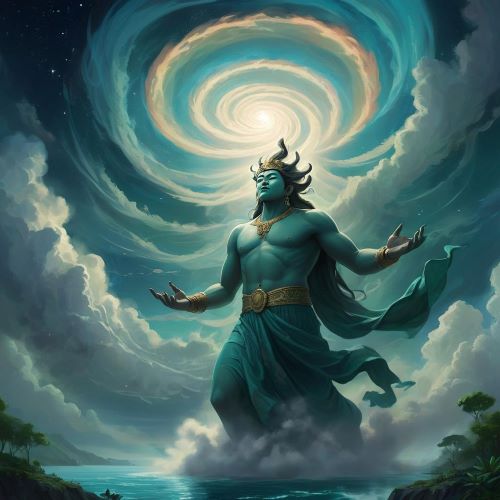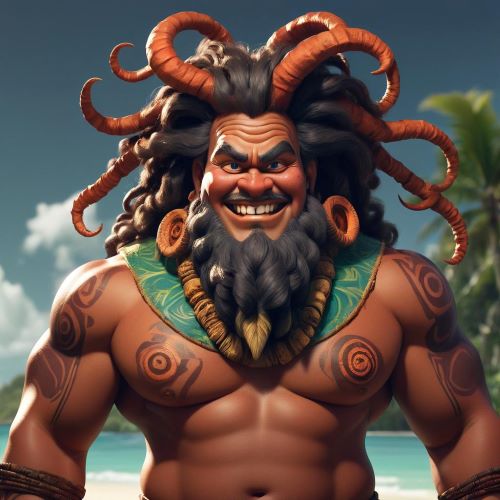Chuukese Mythology
Chuukese mythology, native to the islands of Chuuk Lagoon in the Federated States of Micronesia, represents one of the Pacific’s most poetic and spiritually integrated cosmologies. Rooted in the oceanic world of coral atolls, volcanic peaks, and lagoons, Chuukese belief connects the divine to the natural rhythms of wind, tide, and life. Myths passed through generations by storytellers, navigators, and ritual specialists describe a universe where gods, ancestors, and spirits move within the same currents that shape the physical world. In Chuukese mythology, the sea is not a boundary but a living bridge — the eternal pathway between humanity, the gods, and the ancestors.
At the heart of Chuukese cosmology lies the creator god Anulap, the supreme being who brought the world into existence and taught humanity wisdom, moral law, and craft. Anulap is both the source of creation and the custodian of cosmic balance. He is often associated with the sky and the stars, reflecting the Chuukese people’s deep relationship with celestial navigation. In some stories, Anulap is married to the goddess Ligobubfanu, the guardian of knowledge and fertility, who helps shape life and maintain order among the spirits. Together, they represent the duality of divine intelligence and nurturing power — the balance between knowledge and compassion that sustains the universe.
Many Chuukese myths describe how Anulap and his descendants populated the world and established the laws that govern human society. The deities taught people how to sail, fish, and build canoes, embedding divine instruction in every act of craftsmanship. The navigator’s art, guided by stars and waves, is therefore sacred — a reenactment of the gods’ own journeys across the celestial ocean. The sea gods and spirits, known as aniti, inhabit the deep waters, reefs, and winds. They are both protectors and tricksters, capable of granting favor or punishment depending on human respect for the ocean’s laws. Fishermen traditionally offer their first catch to these spirits, acknowledging that all life and sustenance come from the sea.
Chuukese mythology also preserves stories of ancestral heroes who embody moral virtues and cosmic lessons. One such figure is Olofat, a culture hero, trickster, and demigod who often acts as a mediator between gods and humans. Olofat brings laughter, chaos, and transformation — he steals fire from the gods, challenges divine authority, and teaches humanity resilience and creativity. Like similar figures in Polynesian and Melanesian mythologies, Olofat’s antics carry moral weight, reminding people that wisdom often arises from error, and humility from rebellion.
The spiritual geography of Chuuk is reflected in its rituals and sacred sites. Certain islets, caves, and stones are believed to be dwelling places of ancestral spirits. Rituals of song, offering, and dance maintain the bond between the living and the unseen. The Chuukese see death not as an ending but as a voyage — a return to the ancestral sea where spirits dwell beneath the waves and in the stars above.
Chuukese mythology remains a living narrative of harmony, navigation, and moral order. It teaches that every wind carries a message, every wave has memory, and the path of the canoe mirrors the journey of the soul. The stories of Anulap and Olofat remind the Chuukese people — and the world — that creation is an ocean without end, where the divine continues to sail among us.



